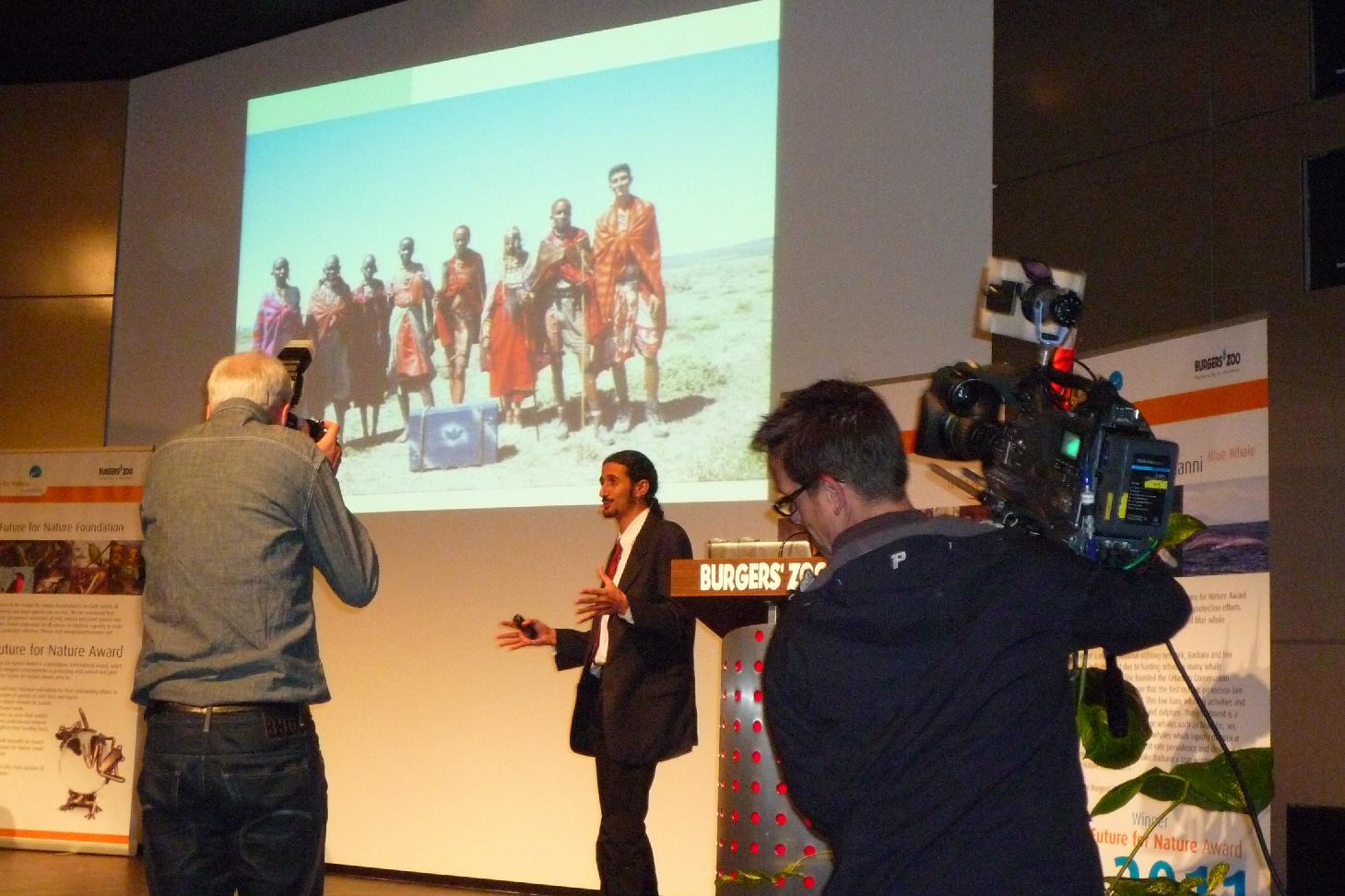Future for Nature Award 2011

LAGA was awarded The Future for Nature award which is given to individuals for internationally outstanding species protection efforts. The award acknowledges individuals who embody an approach to conservation that is entrepreneurial, in that it is innovative, impactful and shapes the future of conservation. Recognizing that approaches need to change, this award recognizes the power of individuals and their influence on conservation. The award was received by the LAGA Director, Ofir Drori in Holland.
The award is the forth in connection to LAGA’s work, and is hoped to give more credibility to and acceptance of LAGA's message and help in its long term quest to affect conservation in a meaningful way.
The ceremony was attended by about 500 invitees, and the Director of LAGA had the opportunity to give a presentation and use the occasion to send across the messages of the need for transparency and accountability and the diversity needed in participation in conservation.
The presentation ended with three main messages that LAGA tries to put on the map –
Anti-poaching in protected areas is not wildlife law enforcement – While over the last few decades we have enormously increased the amount of data we posses on the nature of poaching and trade, we are still using the same old strategy, unchanged. So the ample data we have of the nature of the problem has not been integrated to our solution. Poaching is just a small part of the problem and therefore anti-poaching should be just a small part of a larger strategy for the solution.
Activism – Our challenge did not necessitate a project it demanded a fight. There was no skill or degree we could search for, we had to search for and foster activism – internally motivated individuals who want to bring a change to the realities in their country. It highlights a larger problem of conservation - while striving to become more of a profession maybe conservation has lost along the way some of its base values. We need to get back to what it is all about - not a job, but a mission, and get values back to the front seat of conservation.
Fight corruption – Conservation should start getting serious at tackling head-on Its no. 1 obstacle. Some of the systems we try to work with are dysfunctional and if we work with them we must be ready to work to change them. That means confrontation and it is an integral part of conservation work.
